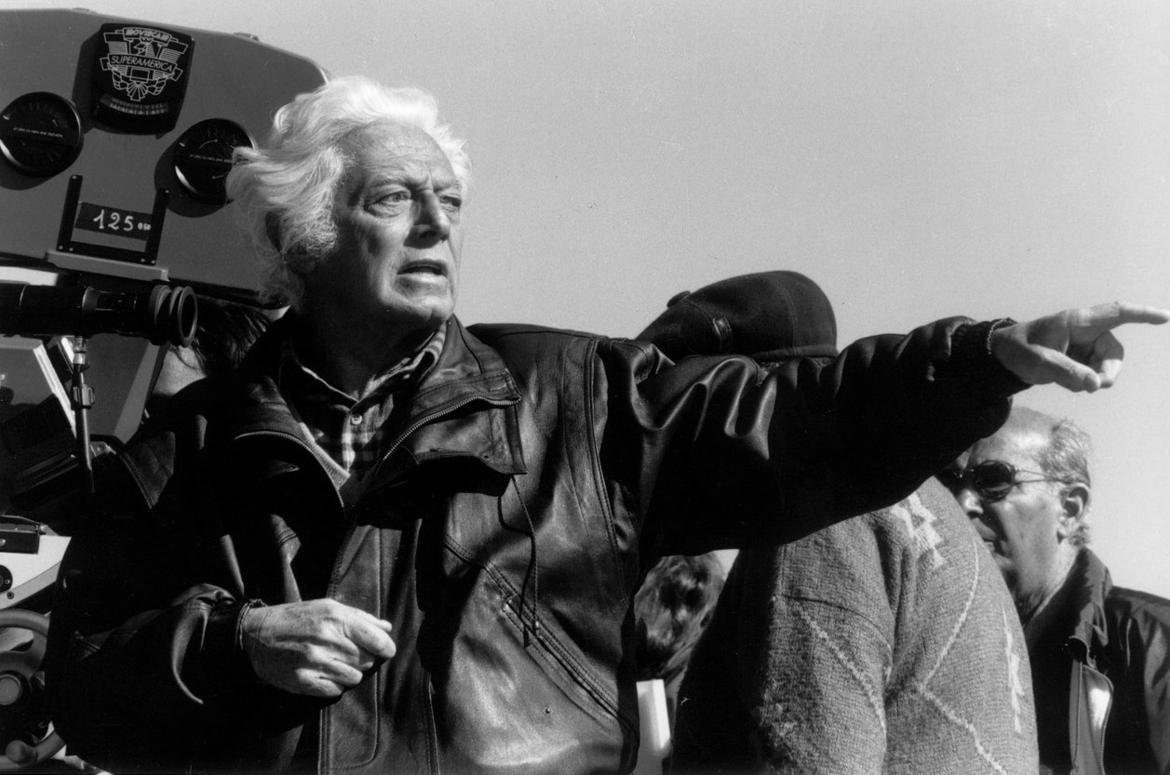In the illustrious tapestry of Italian cinema, few names shine as brightly as Dino Risi. A director whose craft transcends mere storytelling, Risi wields his cinematic brush with the finesse of a master painter, crafting tales that resonate with timeless humanity. Through a lens that marries wit with poignancy, he captures the intricacies of the human condition with unparalleled grace.
Born on December 23, 1916, in Milan, Risi’s journey into the world of cinema was not merely a career choice but a calling. His oeuvre, spanning over five decades, boasts a repertoire that continues to captivate audiences worldwide. Among his myriad works, several stand as pillars of cinematic excellence, each bearing the unmistakable imprint of Risi’s genius.
“I Nostri Mariti” (1956) heralded Risi’s emergence as a formidable force in Italian cinema. A portmanteau film comprising three vignettes, it offers a satirical exploration of marriage and its complexities. Risi’s keen observational eye dissects the institution with razor-sharp wit, revealing its absurdities and contradictions with unparalleled comedic flair.
In “Il Vedovo” (1959), Risi once again showcases his mastery of comedy, weaving a tale of love, loss, and redemption with deft precision. The film follows the misadventures of a newly widowed man navigating the pitfalls of singlehood in a society steeped in tradition. Risi’s nuanced portrayal of grief and resilience elevates the narrative beyond mere farce, imbuing it with a depth seldom found in comedic cinema.
“L’amore in città” (1953), a collaborative effort featuring Risi alongside other luminaries of Italian neorealism, offers a poignant exploration of love in the urban landscape. Through a series of interconnected vignettes, Risi paints a mosaic of human relationships, each imbued with its own joys and sorrows. His deft direction lends the film an authenticity that resonates with audiences to this day.
In “La finestra sul luna park” (1957), Risi ventures into darker territory, delving into the psyche of a disillusioned man grappling with existential despair. Against the backdrop of a carnival, Risi crafts a haunting meditation on the fleeting nature of happiness and the search for meaning in a world fraught with uncertainty. Through his evocative imagery and nuanced storytelling, he invites viewers to confront their own existential dilemmas with courage and introspection.
“Anima Persa” (1977) marks a departure from Risi’s comedic roots, offering a sobering portrait of post-war Italy and its moral decay. Set against the backdrop of a dilapidated seaside resort, the film follows the tragic trajectory of a disillusioned priest grappling with his faith in a world rife with corruption and hypocrisy. Risi’s unflinching gaze lays bare the moral ambiguities of a society teetering on the brink of collapse, challenging viewers to confront uncomfortable truths about the human condition.
“Primo Amore” (1978) serves as a poignant reflection on the fleeting nature of youth and the bittersweet passage of time. Set in the picturesque countryside of Tuscany, the film traces the burgeoning romance between a young couple against the backdrop of Italy’s political upheaval in the 1970s. Risi’s lyrical direction infuses the narrative with a sense of nostalgia and longing, capturing the ephemeral beauty of first love with unmatched sensitivity.
In the annals of cinema, Dino Risi’s legacy endures as a testament to the power of storytelling to illuminate the human experience. Through his nuanced characters, evocative imagery, and razor-sharp wit, he invites audiences to confront life’s complexities with empathy and introspection. As we continue to navigate the ever-changing landscape of the silver screen, let us not forget the indelible mark left by this maestro of Italian cinema, whose films continue to inspire and captivate audiences across generations.
Watch all the movies on Movieitalyplus!
Read more articles here!






